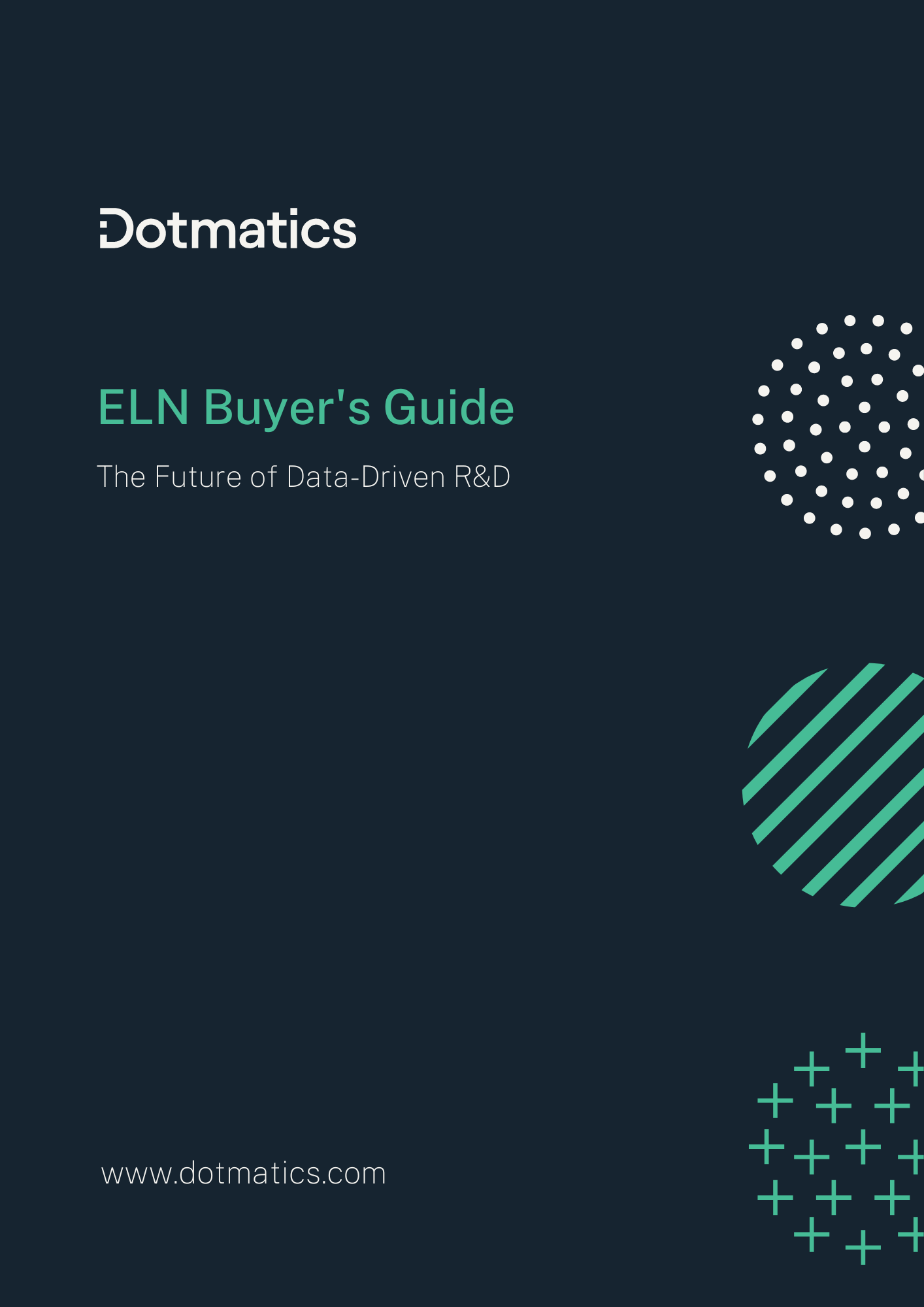
Electronic Lab Notebook Buyer's Guide & Checklist
With the evolution of research, most scientists have moved away from paper laboratory notebooks as they’ve realized the importance of digitally recording experimental information.
Unfortunately, some are still working with cobbled together systems, utilizing a combination of spreadsheets, shared files, and email to capture and share information digitally. These disconnected approaches aren’t ideal because they prevent scientists from sharing real-time results and collaborating for improved decision making. To address those shortcomings, most scientists have moved to electronic lab notebooks, more commonly known as ELNs.
With an ELN, scientists not only have quick access to their own research for years to come, but they can also
easily share their findings with other researchers in their organization. An ELN can help teams evolve from a ‘my data’ approach to an ‘our data’ approach. By enabling collaboration, an ELN can help scientists build on each other’s knowledge and avoid repeating unsuccessful work.
This ELN buyer's guide includes:
The history of ELNs and how collaborative cloud-based ELNs support today’s cross-discipline research workflows
The Ultimate ELN Checklist to help you prioritize the features that are most important to your organization
How managing changes in the lab environment can benefit efficiency and provide results

